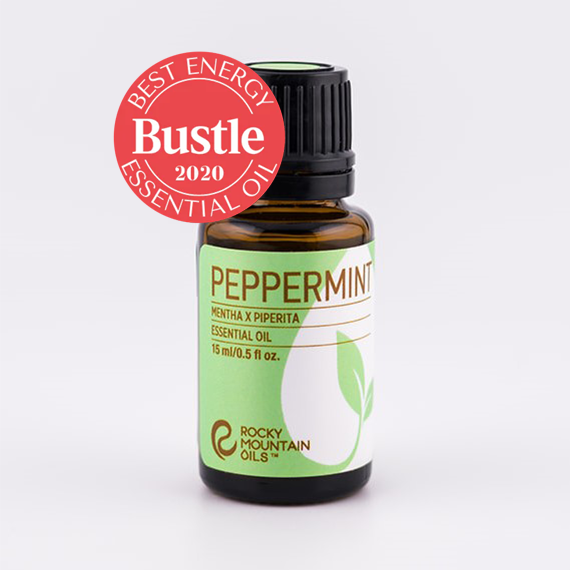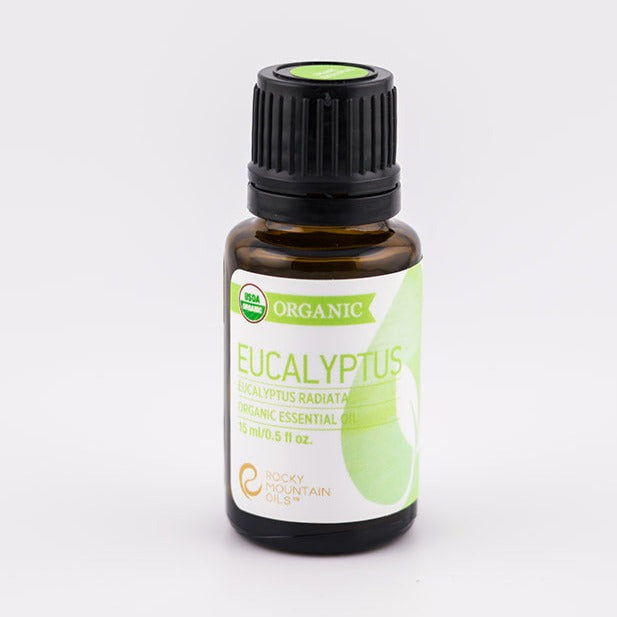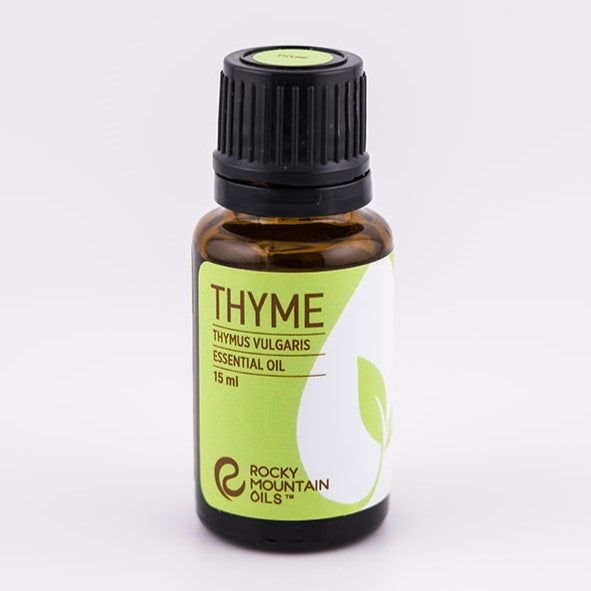Can Essential Oil Help For Sore Throat? Find Relief Naturally!
Essential Oils for Throat Relief
When you're faced with the sharp scratchiness of a sore throat, the search for relief can lead you through a labyrinth of remedies. Among these, essential oils stand out as beacons of natural healing. Not just fragrant fancies, these potent plant extracts offer a cornucopia of therapeutic properties that have been harnessed for centuries. They are nature's concentrate, promising to caress the inflamed tissues of your throat with their healing vapors and soothing touches.

Understanding Essential Oils and Their Benefits
Essential oils are the essence of a plant's defense mechanism, distilled into a form humans can use to our advantage. The benefits of essential oils stem from their properties—anti-inflammatory, antiviral, and antibacterial—making them possible formidable allies against the common sore throat.
Why Natural Remedies for Sore Throat?
Turning to natural remedies, like essential oils, may offer relief without the side effects often associated with over-the-counter solutions. For those who prefer a holistic approach to health, essential oils help provide a symbiosis between the wisdom of nature and the needs of the human body.
The Science Behind Essential Oils
At the molecular heart of essential oils lies their ability to wage war against pathogens. But how exactly do these aromatic wonders work? The answer lies in their composition—complex blends of compounds that each have unique effects on the body.
How Essential Oils Work
Essential oils interact with our bodies in multiple ways. When inhaled, the molecules waft through the air and find their way into our respiratory system, which may help relieve an irritated throat. Applied topically, after proper dilution, they seep through our skin and enter the bloodstream, offering a systemic approach to healing.
Properties of Oils: Antiviral, Antibacterial, Anti-inflammatory
The antiviral components are like microscopic warriors, disrupting the viral invaders that often cause sore throats. The antibacterial elements ensure that no secondary bacterial infection takes hold. Meanwhile, the anti-inflammatory properties help reduce swelling, easing the pain and making swallowing less arduous.
Identifying the Right Essential Oil
With many essential oils available, identifying the one that's a panacea for your sore throat is critical. Each oil has its profile of benefits, and knowing which ones are renowned for their throat-soothing properties can be the difference between prolonged discomfort and swift relief.
Characteristics of the Best Throat-Soothing Oils
The best oils for a sore throat are those that offer a cooling or warming sensation, helping to distract from the pain. They should also possess a solid antimicrobial presence to tackle the root cause of the soreness.
Top Oils for Respiratory Health
Oils like eucalyptus and peppermint not only smell refreshing but also have compounds that are particularly effective in opening up the respiratory passages and soothing inflammation.
What Essential Oil is Good for Sore Throat
Essential oils are not a monolith; each has its specialty. When it comes to easing a sore throat, certain oils have stood the test of time.
Benefits of Specific Oils for Throat Discomfort
Peppermint oil, with its high menthol content, cools the throat and acts as a mild anesthetic. Meanwhile, eucalyptus oil's cineole content makes it a respiratory system's friend, helping to ease cough and clear up congestion.
Essential Oil Safety and Dilution
Like any remedy, essential oils must be used with caution. Their potency is a double-edged sword; what heals at the correct dosage can harm if misused.

Safe Practices for Using Essential Oils
Always consult a professional before beginning any essential oil regimen, especially if you are pregnant, nursing, or taking other medications. Patch tests and proper dilution are non-negotiable steps to ensure safety.
Dilution Ratios and Methods
A standard rule of thumb is to mix 3-5 drops of essential oil with an ounce of carrier oil like coconut or jojoba. This dilution minimizes the risk of skin irritation and systemic toxicity.
How to Use Essential Oils for Sore Throat
Knowing how to deploy essential oils correctly is crucial. Their versatility allows for various methods of application, each serving a different need.
Inhalation Techniques: Steam and Diffusers
Inhaling the vapor from a bowl of hot water with a few drops of oil can provide immediate relief. Alternatively, diffusers disperse the oil into the air, allowing a gentler, more prolonged exposure.
Topical Application: Massages and Compresses
A throat massage with diluted oil can have a dual effect of soothing the area and providing a relaxing experience. Compresses, warm or cold, depending on the oil, can also offer comfort.
Home Remedies Involving Essential Oils
DIY recipes abound for those who wish to take a hands-on approach to their health. Blending essential oils can not only amplify the benefits but also tailor the remedy to personal preference.
DIY Throat Soothing Recipes
Blends incorporating honey, lemon, and suitable essential oils can be a delectable spoonful of relief. Gargles made with saltwater can provide both antiseptic and soothing properties.
Blends and Mixes for Enhanced Effect
By combining oils with complementary effects, you can create a powerhouse of a remedy. For example, mixing peppermint with lemon oil can address pain and immunity.
Aromatherapy for Throat Health
Aromatherapy doesn't just smell good; it can be a profound healing practice. The right aromatic blend can turn your living space into a healing oasis, easing your sore throat with every breath you take.
Role of Aromatherapy in Throat Care
The role of aromatherapy goes beyond symptom relief; it also offers a psychological boost, which can be critical when you're feeling under the weather.
Aromatic Blends for Sore Throat
A blend of lavender, chamomile, and eucalyptus can work wonders, promoting relaxation while fighting off the throat irritants.
The Top 5 Essential Oils for Throat Discomfort
Peppermint Oil: A Cooling Sensation
As mentioned, peppermint oil is the go-to for cooling relief. Its high menthol content is like a gentle, chilly breeze for your throat, providing comfort when it's sore.
Eucalyptus Oil: The Cough Suppressant
This oil is a cough's nemesis. It opens the airways, clears mucus, and calms the cough reflex.
Lemon Oil: The Immunity Booster
Lemon oil's high vitamin C content makes it more than just a kitchen staple; it's an immune system's comrade in the fight against infections.
Thyme Oil: The Bacterial Fighter
Thyme oil is revered for its antibacterial prowess, capable of taking on infections that threaten the throat.
Lavender Oil: The Soothing Agent
Finally, lavender oil, with its calming scent, is the perfect night-time ally, easing throat pain and encouraging a restful sleep.
Professional Insights on Essential Oils
Gleaning expert wisdom can deepen your understanding of how essential oils function in throat care.
Expert Opinions on Throat Care with Oils
Healthcare professionals who embrace holistic medicine often champion essential oils as a complementary treatment, advocating for their ability to ease symptoms and boost overall well-being.
Case Studies: Success Stories and Testimonials
Anecdotal evidence and case studies offer a glimpse into the potential of essential oils. Individuals who've found solace in these natural remedies often speak of a turning point in their health journey.
Combining Essential Oils with Other Therapies
While essential oils can be powerful, they also play well with others. Combining them with other therapies can create a synergistic effect, maximizing the healing potential.
Integrating Oils with Conventional Throat Remedies
For instance, using essential oils alongside throat lozenges can provide immediate and long-term relief.
Complementary Therapies and Essential Oils
Some find that integrating essential oils into practices like yoga and meditation amplifies the benefits, helping to manage both the physical and emotional symptoms of a sore throat.
Precautions and Considerations
When to Avoid Essential Oils
There are certain conditions and situations where essential oils should be avoided or used with extreme caution, such as certain medical conditions in children or during pregnancy.
Potential Interactions and Side Effects
It's important to be aware of the potential interactions between essential oils and medications, as well as the side effects that some individuals may experience.
Essential Oils for Children and Elderly
Children and older people have more sensitive systems, necessitating special consideration when using essential oils for throat care.
Age-Specific Advice for Sore Throat Relief
It's crucial to adjust dilution ratios and application methods to suit the age and health of these sensitive groups.
Dilution and Application for Sensitive Groups
Ensuring safe use involves not only altering the strength of the essential oil preparations but also choosing the gentlest methods of application.
Purchasing and Storing Essential Oils
Quality and purity are paramount when purchasing essential oils. Knowing what to look for and how to store your oils can ensure you use the most effective, longest-lasting products.
How to Choose Quality Essential Oils
Look for quality indicators, such as botanical name, purity, and production method on the label.
Best Practices for Storage
Storing oils away from light and heat helps preserve their therapeutic properties for longer.

How do you use essential oils for a sore throat?
To use essential oils for a sore throat, you can employ various methods. One effective approach is to add a few drops of essential oil, such as peppermint, eucalyptus, or tea tree, to a bowl of steaming hot water. Cover your head with a towel and inhale the steam for about 5-10 minutes, as this can help soothe your sore throat and relieve congestion.
Alternatively, you can dilute essential oils with a carrier oil (e.g., coconut oil) and apply the mixture to your throat, gently massaging it. Be sure to consult a healthcare professional or aromatherapist for guidance on specific oils and their proper dilution ratios, especially when using essential oils topically or for prolonged periods, to ensure safe and effective use.
Is frankincense good for sore throat?
Yes, frankincense essential oil can be beneficial for a sore throat. It possesses anti-inflammatory and soothing properties that may help alleviate throat discomfort. You can add a few drops of diluted frankincense oil to a carrier oil, such as coconut or almond oil, and apply it externally to your throat or chest.
Alternatively, you can inhale its vapor by diffusing it in a room or adding a couple of drops to hot water for steam inhalation, which may provide relief for a sore throat. However, if your sore throat persists or worsens, it's essential to consult a healthcare professional for proper evaluation and treatment.
How do you use lemon essential oil for a sore throat?
Lemon essential oil can be used to help soothe a sore throat. You can dilute a few drops of lemon essential oil in a carrier oil, such as coconut or olive oil, and then apply this diluted mixture to your throat area using a gentle massage.
However, it's important to ensure that the lemon essential oil is properly diluted, as applying undiluted essential oil directly to the skin can cause irritation. If the sore throat persists or worsens, it's advisable to consult a healthcare professional.
Are oil diffusers good for sore throats?
To alleviate allergy symptoms with essential oils, apply them topically to specific areas such as the temples, the back of the neck, or wrists to relieve congestion and headaches. You can also mix essential oils with a carrier oil and apply the blend to your chest or the soles of your feet to ease respiratory discomfort.
However, always perform a patch test and dilute the essential oils properly to prevent skin irritation, and consider seeking guidance from a healthcare professional or aromatherapist for personalized recommendations.
Frequently Asked Questions
Q: Can essential oils replace my medication for sore throat?
A: Essential oils should not be used as a substitute for medical treatment. They can be used as a complementary approach to help alleviate symptoms, but always consult your healthcare provider before making any changes to your prescribed medication routine.
Q: How quickly do essential oils work for a sore throat?
A: Some people may experience immediate relief due to the soothing properties of essential oils, particularly with inhalation. However, results can vary based on the individual and the cause of the sore throat.
Q: Are there any essential oils that should be avoided for sore throat?
A: Some essential oils can be more irritating than soothing for a sore throat. Cinnamon, clove, or oregano oils can be potent and irritate if not adequately diluted or used correctly.
Q: How often can I apply or inhale essential oils for my sore throat?
A: Inhalation through diffusers can be done several times a day, especially if the air is kept moist. For direct application, it's best to limit it to 2-3 times daily, ensuring the oil is adequately diluted to avoid skin irritation.
Q: Is it safe to ingest essential oils for sore throat relief?
A: Generally, essential oils should only be ingested under the guidance of a professional with expertise in aromatherapy. Ingestion can pose health risks and should be approached with caution.
Q: Can I use essential oils for my child's sore throat?
A: Essential oils can be used for children but in deficient concentrations and after consulting with a pediatrician. Some oils are not recommended for children under certain ages.
Q: Are essential oils safe for pregnant women or nursing mothers?
A: Some essential oils can be contraindicated during pregnancy and nursing. It is necessary to consult with a healthcare provider before using any essential oils during this time.
Conclusion
Exploring the fragrant realm of essential oils brings us to a fascinating intersection of tradition and science, particularly when considering what essential oil is good for sore throat. In the timeless pursuit of soothing our throats, these aromatic extracts present a holistic and nature-inspired solution. When employed with care and expertise, they serve as a compelling testament to the inherent potency found within the bounty of nature itself.






